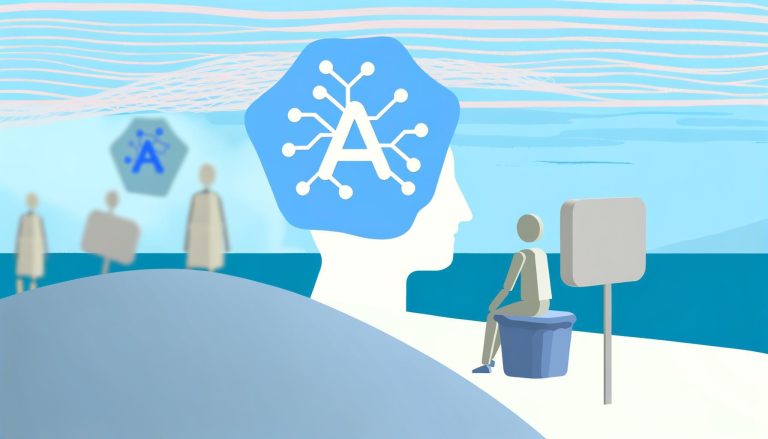In recent years, mental health awareness has grown exponentially, with broader acceptance and understanding driving the push for more personalized approaches to well-being. As technology continues to evolve, artificial intelligence (AI) has emerged as a powerful tool in tailoring mental health treatment to individuals. By analyzing large amounts of data and identifying patterns, AI can offer more nuanced and effective interventions. In this article, we’ll explore how personalized mental health is revolutionized by AI, the benefits it brings, and practical tips for incorporating these advancements into your well-being journey.
Understanding Personalized Mental Health
Personalized mental health care is centered around the idea that each person’s emotional and psychological experiences are unique. Traditional mental health care often applies a one-size-fits-all approach, which may not address the specific needs of every individual. Personalized mental health leverages data-driven insights to create customized treatment plans that cater to an individual’s history, preferences, and personal circumstances.
The Role of AI in Personalized Mental Health
AI-driven solutions in mental health care utilize advanced algorithms and machine learning to analyze vast datasets. These datasets can include medical histories, behavioral patterns, genetic information, and even real-time data from wearable devices. This comprehensive analysis allows AI systems to identify patterns that might not be apparent to human practitioners, leading to more precise and personalized treatment recommendations.
How AI Tailors Mental Health Treatment
- Predictive Analytics: AI can predict the likelihood of mental health issues based on patterns of behavior and lifestyle choices. This early detection enables preemptive interventions that can prevent crises or mitigate the severity of symptoms.
- Customized Therapy Plans: By evaluating individual data, AI can suggest specific types of therapy that might be most effective for a person, such as Cognitive Behavioral Therapy (CBT), mindfulness practices, or even innovative therapies like virtual reality exposure.
- Continuous Monitoring: AI applications can offer ongoing support by monitoring moods and behaviors through journaling apps or wearable technology. This continuous feedback loop ensures that treatment plans remain adaptive and responsive to real-time changes.
- Personalized Interactions: AI-powered chatbots can provide immediate support and resources, simulating human-like interactions to offer comfort, guidance, and right-on-time interventions.
Benefits of AI-Driven Personalized Mental Health
Enhanced Accessibility
One of the major benefits of AI in mental health care is its potential to make high-quality treatment accessible to more people. AI applications can be available 24/7, providing support whenever and wherever it’s needed.
Data-Driven Insights
AI’s ability to aggregate and analyze large volumes of data provides deeper insights into an individual’s mental health. This data-driven approach ensures that the treatment plans are not just based on intuition or fragmented data but on comprehensive and accurate information.
Faster and More Accurate Diagnosis
AI can process information faster than human practitioners, leading to quicker and potentially more accurate diagnoses. For example, algorithms trained on thousands of cases can recognize early signs of conditions like depression or anxiety with high precision.
Cost-Effective Solutions
By automating parts of the diagnostic and monitoring process, AI can reduce the overall cost of mental health care. This makes high-quality care more affordable and accessible to wider populations.
Reduction in Stigma
Utilizing AI-driven mental health solutions can help reduce the stigma associated with seeking help. People may feel more comfortable discussing their issues with AI applications, which can then pave the way for further professional help if needed.
Practical Tips to Incorporate AI into Your Mental Health Routine
Explore AI-Driven Apps
Many AI-powered mental health apps are available that offer features like mood tracking, meditation guides, and even virtual therapists. Experiment with different apps to find one that fits your needs and lifestyle.
Utilize Wearable Technology
Consider investing in wearable devices that can monitor your physical and emotional well-being in real-time. These devices can track metrics like heart rate variability and sleep patterns, offering insights that AI algorithms can use to suggest personalized interventions.
Engage with AI Chatbots
AI chatbots can be a great first step for those hesitant about seeking professional help. These chatbots offer immediate support and can guide you towards appropriate resources and coping strategies.
Keep a Digital Journal
Documenting your thoughts, feelings, and behaviors in a digital journal can provide valuable data for AI applications to analyze. This can help in identifying triggers, patterns, and effective coping mechanisms, contributing to more personalized treatment plans.
Educate Yourself
Stay informed about the latest advancements in AI and mental health. Being knowledgeable equips you to make the best decisions regarding your mental health care and to advocate for yourself in medical and therapeutic settings.
Combine AI with Human Support
While AI offers impressive benefits, it should not replace human interaction entirely. Combining AI tools with traditional therapy, support groups, and personal relationships ensures a well-rounded and effective mental health care plan.
Conclusion
The integration of AI in personalized mental health care is ushering in a new era of treatment that is more customized, efficient, and accessible. By leveraging data-driven insights and continuous monitoring, AI offers the potential for highly effective interventions tailored to individual needs. Enhanced accessibility, faster diagnoses, and the reduction of stigma are just a few of the benefits that make AI a valuable tool in mental health care.
While embracing AI-driven solutions, it’s crucial to remember the importance of human connection and professional support. Using these advanced tools in conjunction with traditional methods and personal relationships can create a holistic and resilient approach to mental well-being.
For those interested in exploring how AI can enhance their mental health journey, apps like Zenora offer features such as mood and habit tracking, goal setting, and personalized insights based on journal entries. By integrating technology into your well-being routine, you can take proactive steps towards a healthier and happier life.





